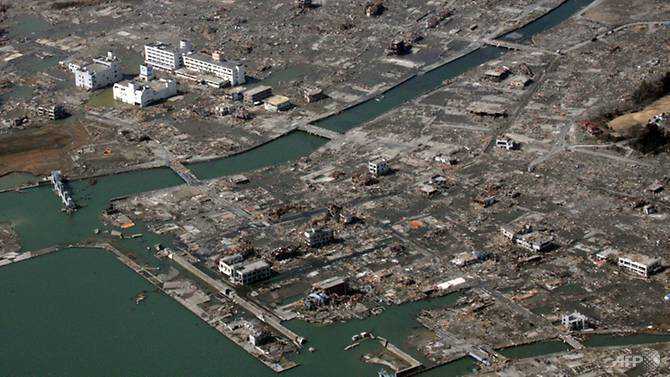Pope to comfort victims of Japan's 2011 'triple disaster'
25 November, 2019

Pope Francis will meet survivors of Japan's 2011 "triple disaster" - earthquake, tsunami and Fukushima nuclear meltdown - on the penultimate day of his long-cherished trip to Japan Monday.
After an emotional day comforting survivors of atomic bombs in Nagasaki and Hiroshima - where the pontiff attacked the "crime" of using nuclear power as a weapon - Francis will meet those still affected by the 2011 tragedy that killed nearly 16,000.
At 2.46pm (0546 GMT) on Mar 11 that year, a 9.0-magnitude earthquake struck the Pacific seabed just 130 kilometres from Japan's northeastern coastline, unleashing a tsunami estimated at nearly 17 metres high.
The wave carried away everything before it, washing away people, buildings and farms, but also damaging cooling systems at the Fukushima Daiichi nuclear power plant, sparking the worst nuclear disaster since Chernobyl.
The human cost of the quake and tsunami was enormous - 15,898 dead and 2,531 still missing. The meltdown itself killed no one, but more than 3,700 people who survived the triple disaster later died as a result of complications related to evacuations.
Nearly half a million people fled their homes in the first days after the quake and even today, roughly 50,000 remain in temporary housing.
The 82-year-old pontiff will also hold Mass in the huge Tokyo Dome baseball stadium and hold private talks with Japan's new Emperor Naruhito and Prime Minister Shinzo Abe.
There are also rumours he may meet people on death row and make comments criticising the death penalty, which is practised in Japan with significant public support.
'POWERFUL INSPIRATION'
Francis has yearned for a trip to Japan since he was a young missionary. He has described his feelings of "fondness and affection" for the country, where Catholics are a minority.
Most Japanese follow a mixture of Buddhism and the native Shinto religion, a polytheistic faith based on a belief that all natural things contain a spirit. There are an estimated 440,000 Japanese Catholics.
The pope said he had found "powerful inspiration" as a young man in the stories of Japanese martyrs, who suffered horrific torture and persecution during the two centuries Christianity was banned in the country when it was closed off to the world.
The emotional centrepiece of his four-day trip was his initial trip to Nagasaki, a city forever associated with the dropping of a nuclear bomb that eventually killed at least 74,000 people.
There, the Argentine lashed out at the concept of nuclear deterrence and prayed in the rain for the victims of those killed in the "unspeakable horror" of the bomb.
He then travelled to Hiroshima, the first city to suffer an atomic attack, where he denounced as a "crime" the use of nuclear power as a weapon.
In both cities, he met people who survived the bombings, and listened to their tales of the horror.
The final day of his trip on Tuesday takes in meetings with young students at Sophia University before concluding his Asian tour.
The first leg of the trip was in Thailand - like Japan a country with a small Catholic minority.
There, he warned Thai youth against the pitfalls of technology and stressed religious harmony and peace in the Buddhist-majority country - holding meetings with monks.
Source:
TAG(s):
